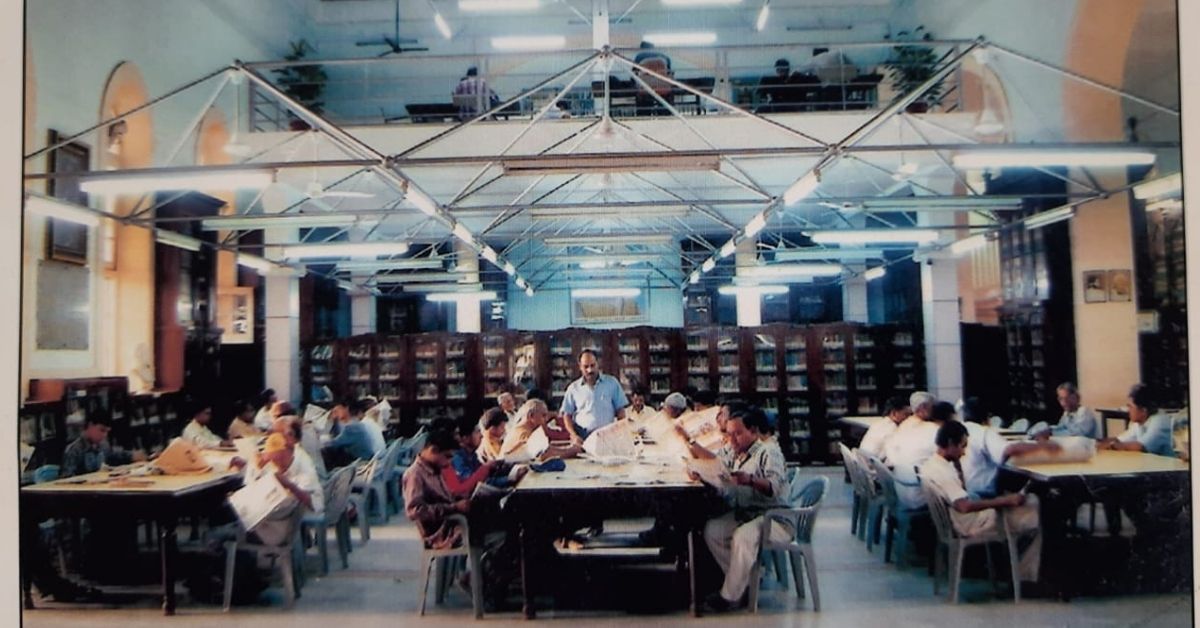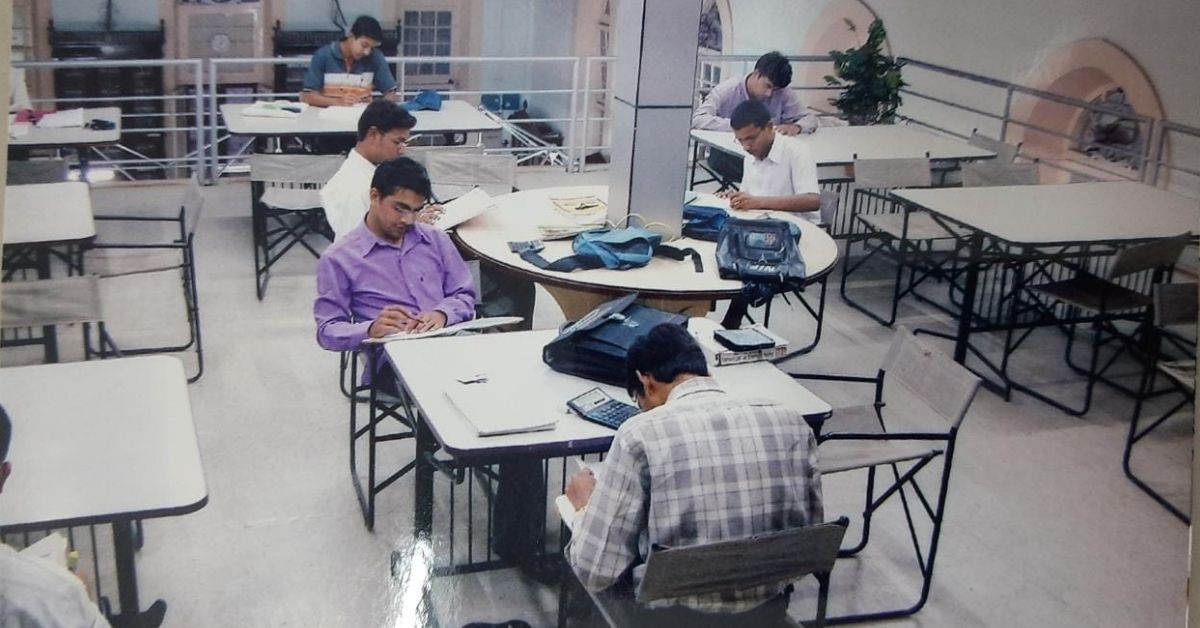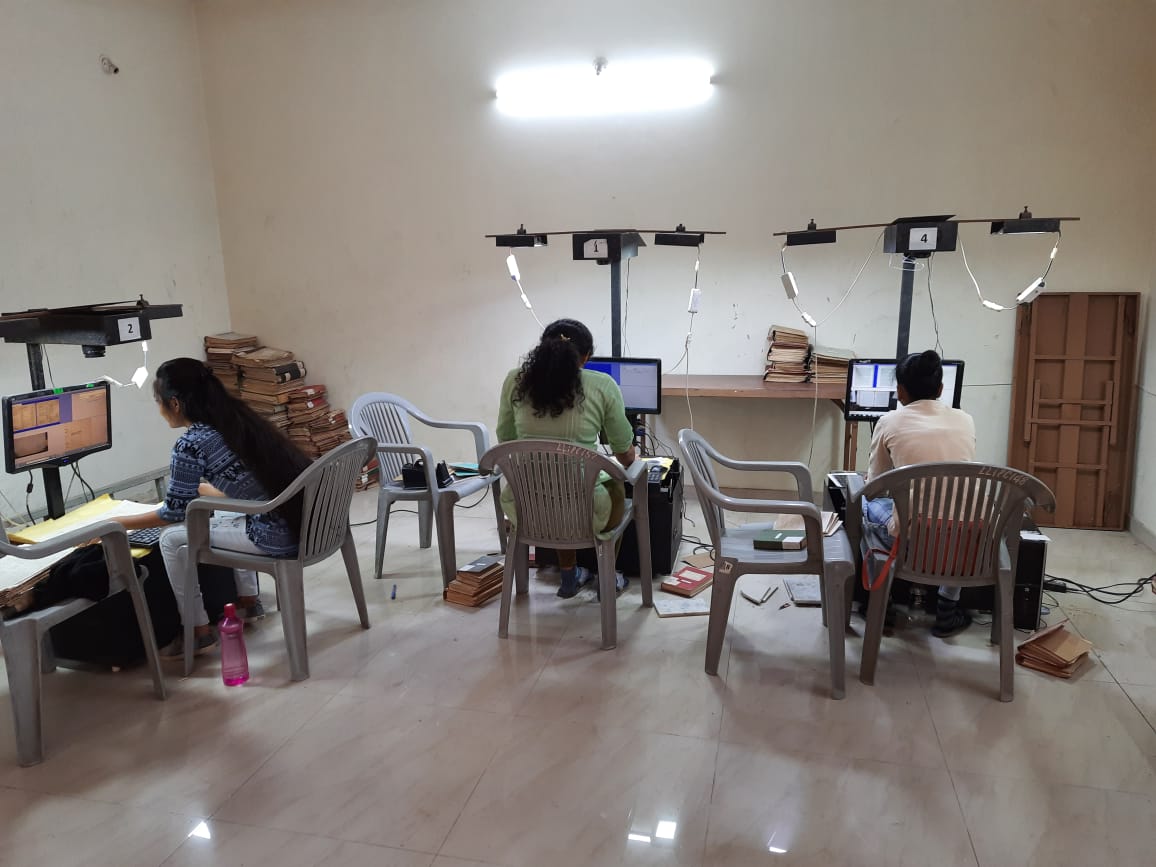Built in 1856, You Can Read 1000s of Rare Books in One of India’s Oldest Libraries
At the Lang Library, which is one of India’s largest public libraries, over 12,000 books have been digitised to preserve century-old texts and literary works, some of which are the oldest accounts of the historic Saurashtra region.

Every morning for the past 22 years, Rajkot-based Kalpa Chauhan (44) has been religiously making her way to Jubilee Garden at the heart of the city. Smack in the middle of the lush landscape lies the majestic, classical-style Arvindbhai Maniyar Hall, which is nearly 150 years old. Formerly known as Connaught Hall, it used to serve as the Assembly Hall for the erstwhile independent state of Saurashtra.
While the northern part of the Victorian sandstone building houses the Gujarat government’s Watson Museum, the central hall is owned by the Rajkot Municipal Corporation (RMC) which uses the space to host community events. Since 1893, the southern wing of the heritage building has been home to one of the oldest public libraries in India, Arvindbhai Maniyar Pustakalaya, popularly known as Lang Library, where Kalpa is employed as its primary caretaker.
Established in 1856 as the Gun Grahak Mandal by a group of intellectuals in Rajkot, it was later renamed Lang Library to honour the contributions of Colonel William Lang, a British political agent, towards the educational development of the former princely states in Saurashtra region. The library was reportedly set up in an English school and later moved to Colonel Lang’s Bungalow in 1864. Notably, Mahatma Gandhi’s father Karamchand Gandhi, who was the Diwan of Rajkot State, is said to be among the scholars who have managed the 165-year-old library, according to its website.
As Professor Dr Yogesh S Mehta points out in his paper, The Lang Library, A University in Miniature, the main hall of the library features a portrait of the Englishman, a marble plaque below which reads: This Library formerly established in the Residency grounds was founded by the chiefs of Kathiawar in the memory of Col. W. Lang who served for 28 years in this province in which was Political Agent from 1856 to 1859. A kind friend and a firm administrator, he endeared himself to Chiefs and subjects and to his private beneficence was due to the first girls’ school in Kathiawar.
Readers at the Lang Library have access to about 1,07,000 books in the genres of Gandhian literature, Jain literature, Parsi literature, historical albums, biographies, philosophy, art, reference and religion stored in a vertical carousel system. A major chunk of these books — available in English, Gujarati, Hindi, Persian, Sindhi, Urdu and other regional languages — have their origins in pre-independent India. Yet, the Lang Library Trust (LLT) has been able to successfully combat the ravage of time and decay, digitising as many as 12,000 books over the past four years.
“Of these, 4,500 are extremely rare books that are more than a hundred years old. Some were donated by former rulers of Kathiawar’s princely states, and are exclusively preserved in our library,” Kalpa tells The Better India. “People aren’t always cautious when they take books home, so we’ve stopped lending the rare ones altogether. If we don’t preserve them, the coming generations will be deprived of these historically and culturally significant works. The digitisation of about 2,000 more books is underway, which we’re hoping to complete by April next year.”
Some of the rarest and oldest books that the Lang Library has digitised so far include Gujarat titles such as Ranikdevi ne Rahkhengar, Maharani Shree Victoria nu Jivanchritra, Maharaja Malharrav Gayakvad, England ma Pravash, Kachchh Deshno Itihash, Sikander Name, Kathiyawad Directory, Kathiyawad Sarvsangrah, Rajkot Directory, Mahikantha Directory and Revakantha Directory. Kalpa says that these were donated from the personal collections of the rulers and that they narrate the oldest accounts of the Saurashtra region.
An earthquake-led restoration
The main entrance to the library opens to a well-furnished reading room that displays daily editions of as many as 27 Gujarati, Hindi, Marathi and English newspapers, as well as current affairs magazines.
“Anybody can walk in and avail this facility free of cost, but the room is mostly frequented by middle-aged and senior residents. Two wings on either side have the main issue section and a children’s library, on top of which is a dedicated facility for women readers. Next to that is a study room for students who bring their course material here as they do not have the space to prepare for their examinations at home,” says Kalpa, who has a bachelors and a masters degree each in library sciences.
While the library’s digitised works are presently available to readers at only one of its dozen computers, the management is working towards making the virtual copies available on all its systems. “We are also planning to upload these on our website so as to enable their universal access. Someday, if we are able to obtain the funds and required copyright permissions, we’d like to digitise all our books,” she says, adding that LLT has already spent Rs 40 lakh to achieve this feat.
For this purpose, the LLT had approached Tirth Infotech, an Ahmedabad-based software company, in 2019. She explains, “They make use of a scanning machine with a high-focus camera attached at its top. Each page of a book is placed within the markings of a glass tray; its positioning can be viewed on a computer screen and adjusted accordingly. So, four to five of the company’s employees keep clicking and uploading pictures onto their six computers. The digitisation of a small book, say, with 200 pages can be completed within three hours.”
“Some readers end up staining the pages with their food, others underline passages and make notes with pencils and even permanent markers. The company has software to clean and edit these markings out of the pages for their digital version, although we also keep a copy of the original pages. After all, these books are priceless,” she says.
The library, open from 8 am to 8 pm every day, sees a daily footfall of 700-800 readers, says Pravin Rupani (75), honorary secretary of LLT. While the organisation has 8,000 registered members, only 3,500 are active as of now and pay a nominal fee of Rs 30 per month for the library’s maintenance, he adds.
“In the late 90s, the library’s financial condition was in dire straits. We used to face a lot of difficulties to regularly pay all employees,” he recalls. “On 26 January 2001, Kutch was struck by a massive earthquake and the impact was such that it severely damaged the structural integrity of the Arvindhbhai Maniyar building. However, we thought it was a god-given opportunity to collect funds for the long-overdue restoration of the library.”
“We started seeking donations and were able to collect around Rs 45 lakh for the renovation. Besides Rajkot’s civil society, several MPs and MLAs also pitched in and the cumulative interest from the leftover funds has helped sustain the library till date,” he adds.
The largest donation of Rs 25 lakh, Pravin says, was received from the Arvindbhai Maniyar Jankalyan Trust, an NGO named after a former mayor of Rajkot. The LLT, too, decided to associate the library’s name with his, as a mark of their gratitude.
Although the 15-member committee officially meets once every three months, it also sets up informal discussions whenever required. “We faced a lot of difficulties together during the lockdown last year, when the entire state was shut for three consecutive months. Although the number of visitors had severely declined for a few months, it has now returned to normalcy. Our dedication and shared love for books has enabled us to overcome any and all troubling circumstances,” he notes.

‘Living beings that require nourishment’
Lang library comes under the aegis of the Gujarat government’s Youth, Sports and Cultural Activities department. “They provide us with an annual grant of Rs 5 lakh for the maintenance of the library. In fact, nine other libraries across Gujarat, all over a hundred years old, also receive the support. But being a grant-in-aid institution, the trust has to bear the remaining of the expenses,” says Kalpa while stressing the importance of individual donations.
“So many people readily donate to temples, but nobody wants to give this much money to libraries. Voh nahi samajhte ki ye bhi vidya ka mandir hai (They don’t understand that this is a temple of knowledge). We often run short of funds, and trust members pay money for the upkeep from their own pockets. We also annually publish a souvenir and accept advertisements from prominent industrialists in Rajkot, which also helps to an extent,” she adds.
“You won’t find some of our books, such as a Sanskrit dictionary, anywhere else in the entire country,” claims Pravin. “In fact, when the Government of India was determining its borders with Pakistan after the Partition, they had put several newspaper advertisements to seek help from organisations that had ‘original’ [historical] maps of the subcontinent. A rare, full-size map from our library was sent for this purpose.”
Despite the ongoing digitisation, repeated usage of hardcover books results in the yellowing and crumbling of its pages and requires constant care, says Kalpa, adding that the books deserve the same amount of dignity as a human life.
“As the atmosphere continually affects our bodies, books, too, are highly sensitive to changes in the weather. For instance, they’re prone to moisture during the rainy season and require heat treatment. During summers, the pages might wrinkle up, and we open the cupboards for a short period every day so they get some fresh air. They’re also vulnerable to booklice and we use a medicinal spray to keep such insects at bay,” she says. “For those who can open their eyes to it, books, too, should be considered living beings and given just as much nourishment.”
For any enquiries, you can contact Lang Library here.
(Edited by Divya Sethu)
If you found our stories insightful, informative, or even just enjoyable, we invite you to consider making a voluntary payment to support the work we do at The Better India. Your contribution helps us continue producing quality content that educates, inspires, and drives positive change.
Choose one of the payment options below for your contribution-
By paying for the stories you value, you directly contribute to sustaining our efforts focused on making a difference in the world. Together, let’s ensure that impactful stories continue to be told and shared, enriching lives and communities alike.
Thank you for your support. Here are some frequently asked questions you might find helpful to know why you are contributing?


This story made me
-
97
-
121
-
89
-
167












